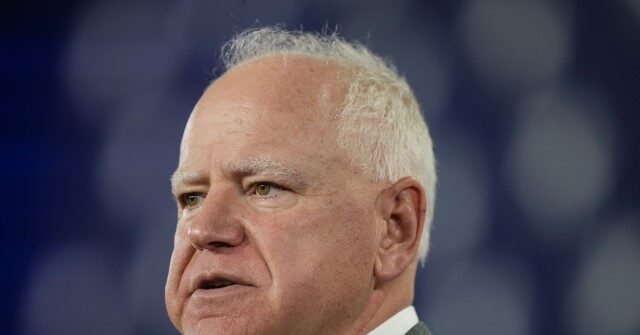On the heels of a significant electoral defeat, Minnesota Governor Tim Walz delivered a speech that revealed both his confusion and concern regarding the American electorate’s choice. Following a decisive victory for Donald Trump, who clinched both the electoral college and the popular vote, Walz struggled to understand why many voters rejected the vision he and Vice President Kamala Harris championed. He called for a unified approach moving forward, while concurrently taking jabs at Trump and expressing disappointment over the election results. In his reflections, he emphasized the need for dialogue and sought to address the apparent disconnect between his administration’s values and those of the voters who had opted for the opposing political path.
During his post-election address, Walz expressed a deepened sense of bewilderment regarding voters’ priorities. He acknowledged that despite his perception of what people cared about—such as meaningful employment, safe neighborhoods, good schools, and accessible healthcare—the evidence suggested that Trump’s narrative resonated more strongly. Walz remarked on the common goals shared by people, affirming support for fundamental needs while highlighting the contrasting visions that led to the political rift evident in the election. He characterized the electoral outcome as a reflection of a broader misunderstanding or misalignment with the aspirations of the electorate.
Walz sought to bolster his credibility by outlining his accomplishments in Minnesota as a counter to Trump’s messaging. Just as Trump had made significant inroads into traditionally Democratic-voting states, Walz aimed to defend his record by underscoring his dedication to inclusion and democratic values. He accused Trump of promoting division and casting blame, asserting his commitment to stand against hate and advocate for the rights of all citizens. This pledge indicated a desire to continue fostering a sense of belonging while challenging the incoming administration’s divisive rhetoric, suggesting an urgent need for state-level fortitude to protect those values.
Despite the electoral setback, Walz felt compelled to present a roadmap for progress amid fears of the incoming Trump administration’s agenda. He articulated a commitment to maintaining Minnesota’s progressive values, touching upon key issues such as immigration, climate change, and democratic discourse. Walz’s assertion that Minnesota would remain an inclusive state seemed a strategic play to reassure constituents who might feel anxious about the direction of national politics under Trump’s leadership. His rhetoric aimed to convey resilience and a commitment to defending hard-won social progress while simultaneously cautioning against complacency.
In a tone of vigilance, Walz warned of the potential consequences of a Trump presidency for Minnesota, urging residents to be prepared for anticipated challenges. He painted a vivid picture of what he believed might transpire under Trump’s rule and pledged to actively resist any initiatives that could undermine the state’s core values. By framing the discourse around defending local achievements from external threats, Walz sought to galvanize support and unify the Democratic base during a turbulent political transition, reinforcing a collective identity geared towards resistance.
Concluding his remarks, Walz advocated for a measured approach in the face of electoral division, recognizing the urgency of finding common ground. He urged Democrats to refrain from harsh judgments about those who voted differently, emphasizing empathy over hostility. His appeal for introspection urged his supporters to focus on building bridges, even in a politically charged environment. While grappling with feelings of disappointment and frustration, Walz’s conclusion underscored a commitment to hope and collaboration, marking a critical juncture in addressing the complexities of a divided electorate and the path forward for Minnesota and beyond.

